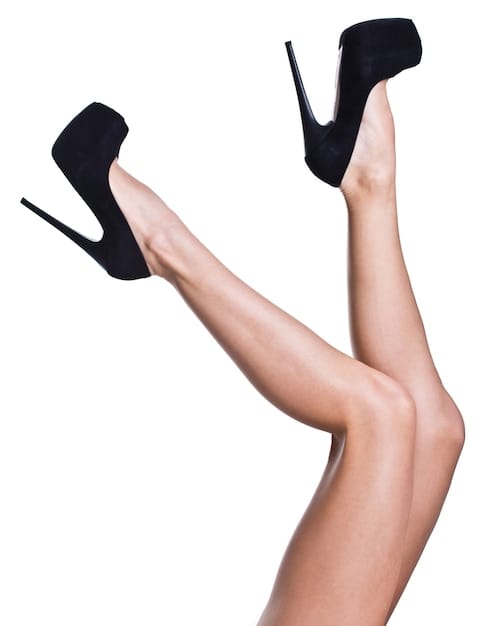
High heels can definitely make an outfit look fabulous, but they can also be harmful to your feet over time. Many people don’t realize the long-term damage they can cause. The constant strain on your foot and ankle from wearing high heels can lead to broken bones or serious infections if you continue wearing them for long periods. If you’ve been wondering when to stop wearing high heels, it’s probably a good idea to start thinking about it now.
When should you stop wearing high heels? Generally, it’s around the age of 50-60. By this age, most people switch to more comfortable footwear. If you’re still wearing heels, try to gradually ease out of them until you can go without them completely.
Age-Related Factors to Consider
1. Physical Changes with Age: As you get older, your body goes through changes, especially in your muscles and bones. Your connective tissues lose elasticity, muscles weaken, and bones might become more brittle. These changes make it harder to balance while wearing high heels.
2. Increased Susceptibility to Foot and Joint Issues: As you age, the chances of developing foot problems like bunions, hammertoes, and plantar fasciitis go up. High heels make these issues worse by putting too much pressure on your toes, heels, and arches, leading to chronic pain and deformities. Aging joints also lose flexibility, making it harder to deal with the strain from high heels.
3. Lifestyle Considerations: Aging often brings changes in lifestyle, from job demands to physical activities and social events. Some professions or activities require long periods of standing or walking, so comfortable footwear is essential to avoid discomfort and injury.
Why You Should Minimize Wearing Heels
1. Sore Feet: High heels can cause sore feet, but they can also lead to pain in your hips, knees, back, and ankles. The pressure on the balls of your feet from wearing heels puts stress on these areas, which can lead to chronic pain. If you’ve had back or hip injuries, wearing heels regularly can worsen these issues.
2. Posture Problems: High heels can mess with your posture, making it hard to walk normally without them. This can lead to back and knee problems if worn too often or for too long each day.
3. Impact on Joints and Muscles: High heels put pressure on your joints and muscles, causing pain, inflammation, and possibly leading to arthritis, muscle strain, muscle fatigue, spasms, and cramps. Wearing high heels increases the risk of foot damage by 30% and makes you 10 times more likely to develop bunions.
4. Bunions and Hammertoes: High heels can cause bunions, where the big toe sticks out more than usual, and hammertoes, where toes bend inward painfully. These conditions can be disfiguring and make it hard to wear certain shoes.
5. Ball of Foot Damage: Extended wearing of high heels can cause inflammation and pain in the balls of your feet, sometimes leading to balance issues and falls.
Can I Wear Heels at 50?
Yes, but you need to be careful. As you age, changes in your feet, knees, hips, and back affect your ability to wear heels safely. If you still want to wear them, do so in moderation, limiting the time and frequency. Keep in mind that joints become stiffer and less flexible over time, making it hard to stand on tiptoes. Improperly fitting heels can also cause back pain.
Can a 70-Year-Old Woman Wear High Heels?
Yes, but it becomes more challenging as you get older due to weaker joints and muscles. It’s advisable to wear high heels less frequently to protect the health of your legs.
What Happens When You Stop Wearing High Heels?
1. You’ll Be Happier: You won’t need high heels to boost your confidence. You can walk, run, and dance comfortably without the pain and discomfort from wearing heels.
2. You’ll Be Healthier: The uneven weight distribution caused by heels can lead to back, knee, and hip problems. Stopping the use of heels can improve these conditions.
3. You’ll Be More Comfortable: Without high heels, there’s less pressure on your feet, and your legs won’t have to support an unnatural weight all day, perfect for enjoying comfortable summer sandals.
Conclusion
While high heels can be appealing, it’s important to be aware of the potential harm they can cause as you get older. There are many other stylish and comfortable shoe options out there, so consider making the switch to protect your feet and overall health.